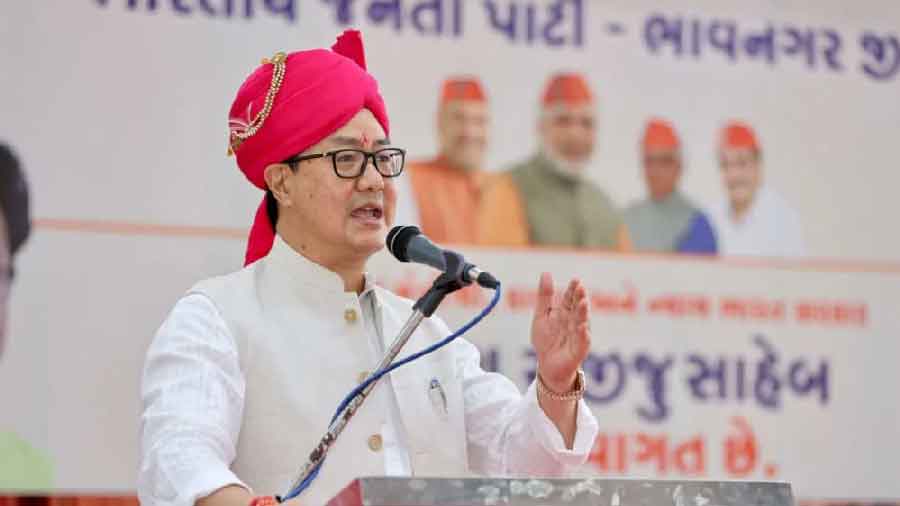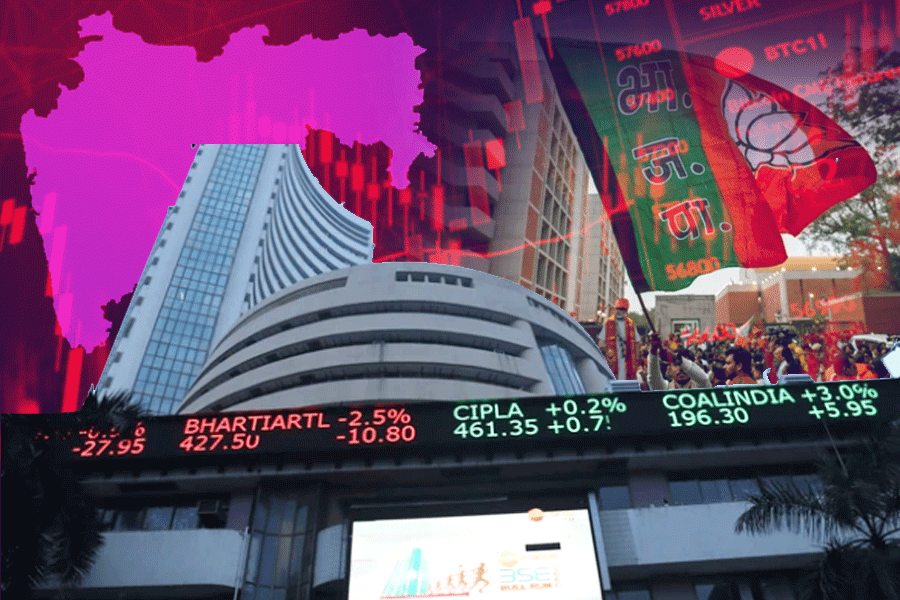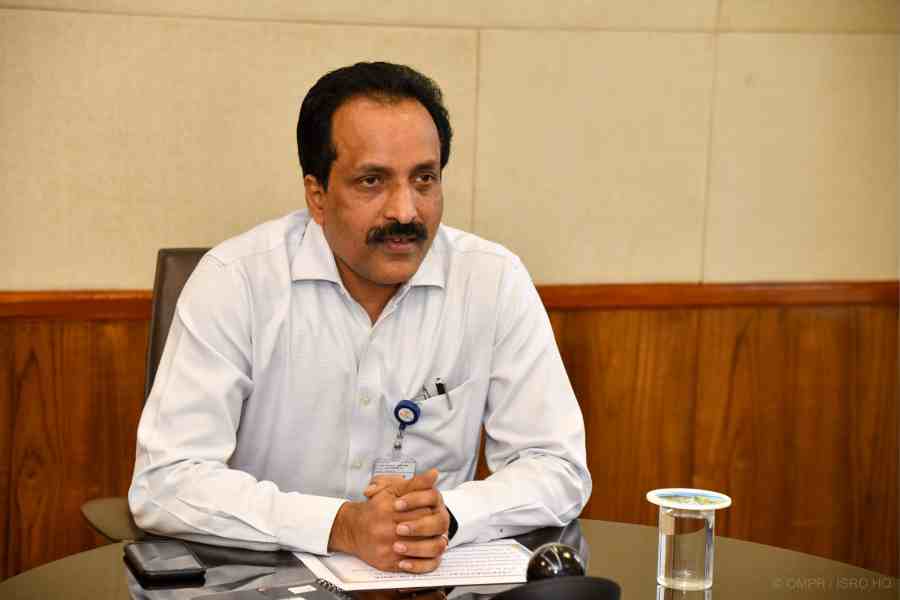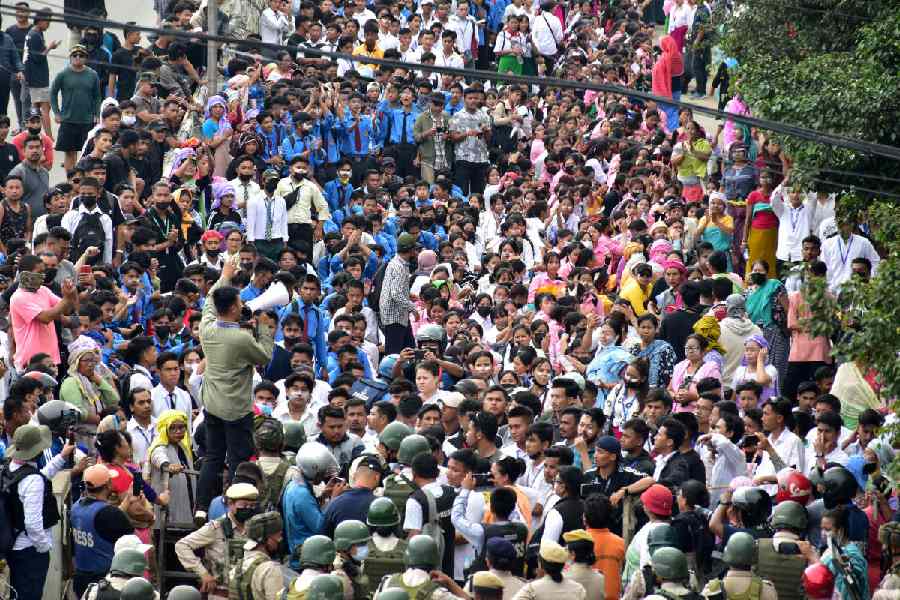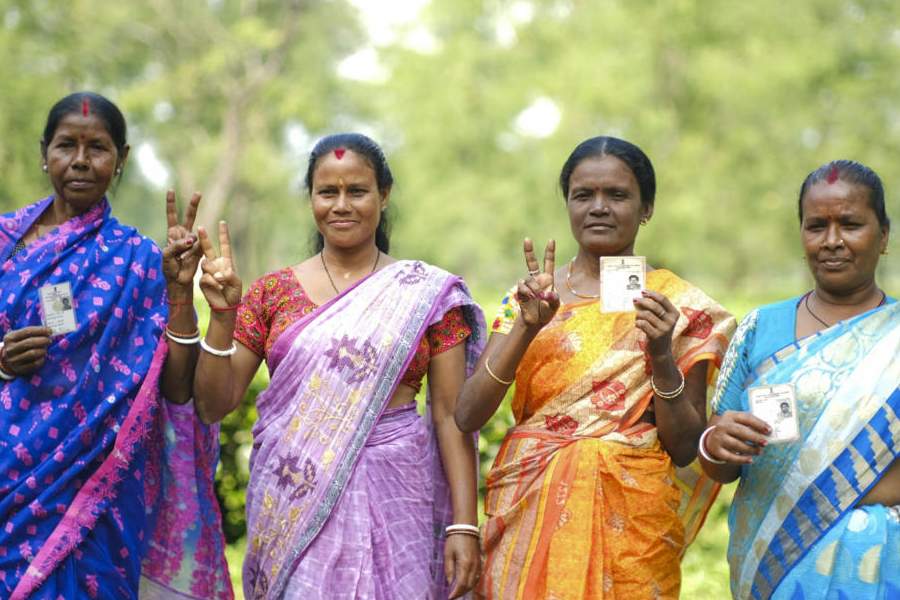Several Opposition parties and a former chief election commissioner have cautioned against constitutional overreach in the Election Commission of India’s proposal for parties to explain the financial implications of promises made in their poll manifestos.
On Tuesday, the commission had asked national and state parties for their views on including a pro forma in the Model Code of Conduct requiring parties to explain how their promised welfare schemes would be funded if they were elected to power.
This, the panel said, was in line with 2015 guidelines, issued on the prodding of the Supreme Court, that called for a “level playing field and credibility of promises….”
Jairam Ramesh, MP and Congress general secretary in charge of communications, told The Telegraph: “This is simply not the business of the EC (Election Commission). It goes against the essence and spirit of competitive politics and will be yet another nail in the coffin of democracy in India. None of the welfare and social development schemes that have been transformational over the decades would ever have become reality if such a bureaucratic approach had been taken.”
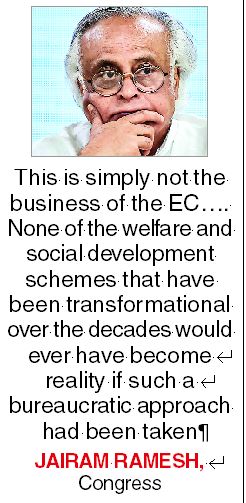
The commission’s push comes days after it expressed its inability in the Supreme Court to regulate “freebies” offered by parties. Citing its role as an impartial constitutional body tasked to conduct elections, the commission stayed out of an expert committee formed by the apex court to decide the fate of “freebies”, but supported its formation.
The political parties have until October 19 to respond to the poll panel’s proposal for the pro forma.
The CPM called the commission’s move “unwarranted”.
“The Constitution mandates the Election Commission to conduct free and fair elections. It is not the job of the Election Commission to regulate the policy pronouncements and welfare measures that political parties promise to the people. This is an area which is solely the prerogative of political parties in a democracy,” the party said in a statement on Wednesday.
“The Election Commission had, in an affidavit to the Supreme Court in April, stated that the commission cannot regulate policy decisions of political parties and that it would be an overreach of powers. It is surprising that the Election Commission has now taken a contrary stand. Is this due to pressure being exercised by the executive?”
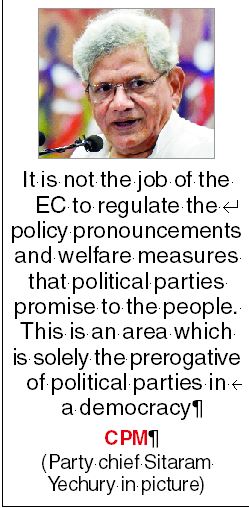
Prime Minister Narendra Modi had in a speech in Uttar Pradesh in July mocked the freebies offered by political parties during elections, saying: “Today in our country, attempts are being made to collect votes by distributing free rewris.”
A rewri, a sweet made from jaggery and sesame seeds, is a Hindi euphemism for worthless sops.
Trinamul MP and former Union culture secretary Jawhar Sircar told this newspaper: “If they (commission) wish to ask for explanations, let them begin with false promises already made and proven to be false. Like Modi’s promise to bring back black money from abroad.
“The amount of money held abroad — much of which is surely black money — has gone up since Modi came (to power). If the EC desires to know the economics of electoral promises it could ask the BJP how it could swear to put Rs 15 lakh into the bank account of each Indian. From which budget?”
Sircar added: “He (Modi) is actually alarmed at how chief ministers, as in Bengal, are able to deliver so much through a slew of pro-people schemes — all of which are accounted for in the budget — while he subsidises big capital through reduction in corporate taxes and a Rs 12 lakh crore write-off of bad loans of banks, and then recapitalises banks with precious government resources. It’s his frustration at the success of the welfare schemes of Opposition parties that leads him to provoke the SC (Supreme Court) and EC.”
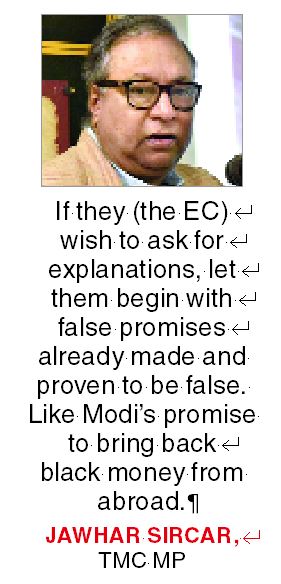
BJP parliamentarian Rajendra Agrawal, part of his party’s department that deals with the commission, told this newspaper in his capacity as “an MP and a citizen” that the poll panel proposal was “a good step”.
“Every party should be made accountable for everything (they promise). If they don’t have the means for it, where will the money come from? Every party is now making promises — there should be some discipline,” he said.
O.P. Rawat, a former chief election commissioner (CEC), advised caution. He told this newspaper: “This kind of disclosure may be part of the political process and parties may deny (consent to the proposal). The SC has already ruled that neither the EC nor even the courts can enter into the political process.”
However, former CEC Navin Chawla, author of Every Vote Counts: The Story of India’s Elections, hoped the move would lead to a meaningful debate on money power in elections.
“For more than 25 years the EC has sent reform proposals with solutions to various governments to curb black money and money power in elections. These have largely been ignored,” he said.
“I see the current proposal as an excellent opportunity for dialogue between political parties and the EC on promises that have budgetary implications, as well as on the use of black money in elections.
“Free TV sets, mangalsutras, electricity or water, all have budgetary implications and such promises are misleading if they (the parties or the candidates) do not have the means to implement them.”
In September, the Election Commission under new CEC Rajiv Kumar — who had taken over from Sushil Chandra in May — reiterated its demand to the Centre to limit anonymous political donations to a maximum of Rs 2,000 from the current Rs 20,000.
It also asked the government to amend the rules and abolish postal ballots for polling officials, which the Congress has accused the BJP of manipulating through undue influence on such voters.
Union law minister Kiren Rijiju tweeted on Thursday: “The Centre will take steps after due consultation for major electoral reforms which are required as per the new changing time and situation.”

